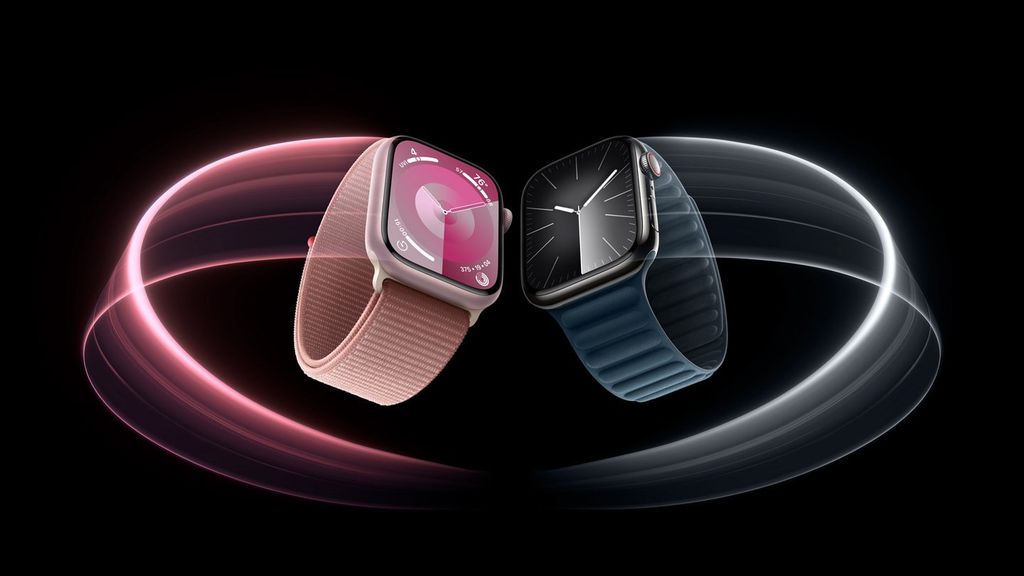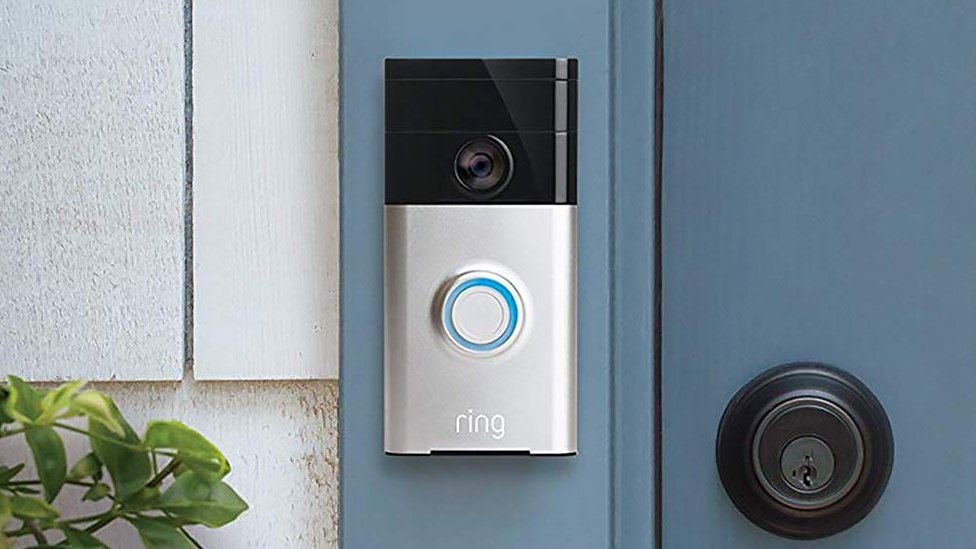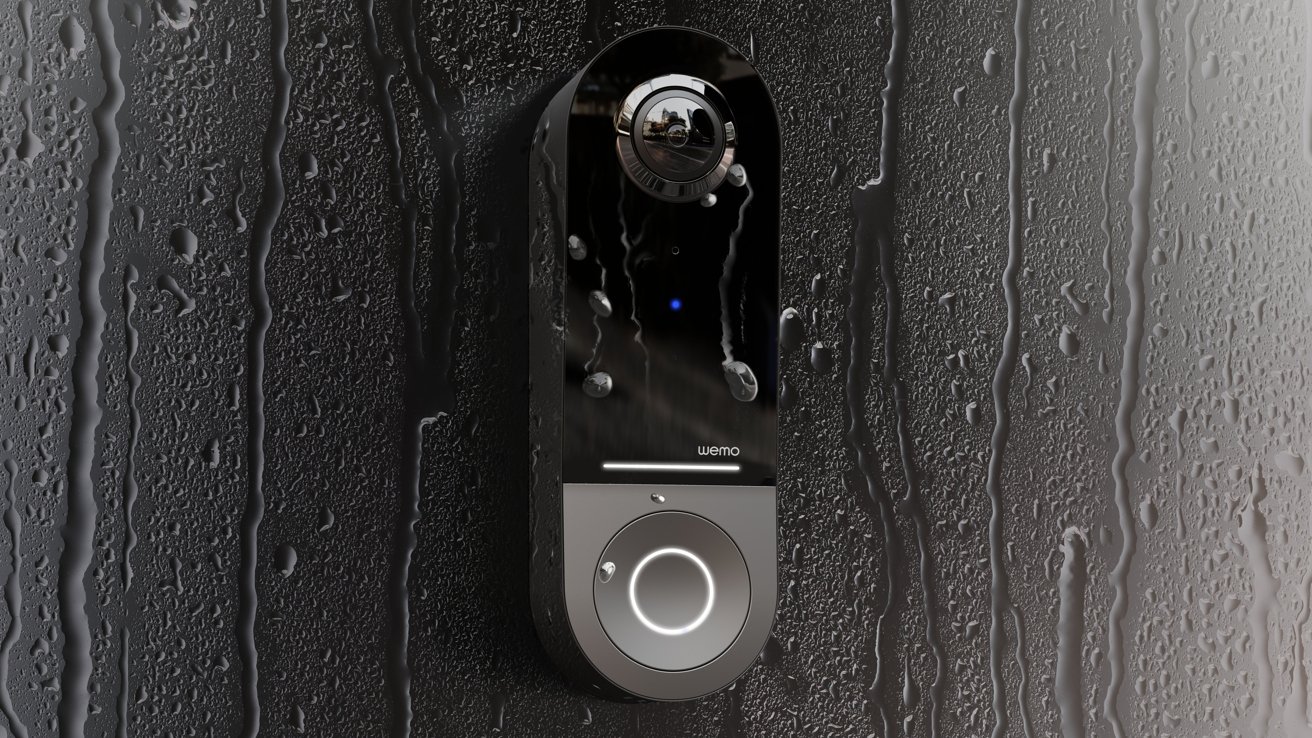Apple is reportedly venturing deeper into the smart home market with a groundbreaking product—a smart doorbell equipped with advanced facial recognition technology and wireless connectivity to a deadbolt lock. According to Bloomberg News reporter Mark Gurman, the device will function similarly to Face ID on iPhones, scanning residents’ faces to automatically unlock doors. This marks Apple’s potential entry into a competitive arena dominated by industry leaders like Amazon and Google.
Here's ads banner inside a post

A Strategic Push into Home Security
Apple has long been a player in the smart home ecosystem with products like the Apple TV, HomePod mini, and HomeKit platform. However, this rumored doorbell reflects a shift towards a more aggressive strategy, particularly in the home security market. It’s a significant move, as the company seeks to carve out a niche in a space largely dominated by Amazon’s Ring and Google’s Nest.

Here's ads banner inside a post
The key differentiator? Privacy. Apple has consistently emphasized its commitment to user privacy across its products and services, a stance that could give it an edge in this sensitive market. The promise of secure facial recognition and encrypted video storage might appeal to users wary of sharing their home security footage with tech giants that rely heavily on advertising revenue.

The Competitive Landscape
The smart home market is highly competitive, with Amazon and Google leading the charge for years. Ring’s ubiquitous doorbells and Google’s Nest devices have become synonymous with home security. Apple’s challenge lies in entering a crowded market with entrenched players, yet its track record suggests it’s up to the task.
Here's ads banner inside a post
/2021_5_21_637572111196967095_loa-google-nest-hub.jpg)
One potential advantage is the seamless integration of an Apple doorbell into the broader Apple ecosystem. Imagine receiving real-time notifications on your Apple Watch when someone rings the doorbell, then unlocking the door with a tap on your iPhone. This level of interoperability is a hallmark of Apple’s design philosophy, and it could set its offering apart from existing products.

Privacy as a Selling Point
Privacy has become a major concern in the digital age, particularly when it comes to surveillance and home security. Amazon and Google’s business models rely heavily on data collection, which has raised eyebrows among privacy-conscious consumers. Apple, however, has built a reputation for prioritizing user data protection. This ethos could make its smart doorbell an attractive option for those who want robust security without compromising on privacy.

Additionally, the integration of this device with iCloud for video storage presents another opportunity for Apple to expand its services business. Subscribers could enjoy encrypted video storage, ensuring that their footage remains accessible only to them.
The Technology Behind the Doorbell
While details about the hardware remain scarce, the potential applications of Apple’s advanced technology are tantalizing. Drawing inspiration from the Face ID system used in iPhones, the doorbell would feature facial recognition that’s fast, reliable, and secure. This technology could allow the doorbell to recognize family members, friends, or even regular visitors, tailoring its functionality to the needs of each household.

If Apple incorporates the recently launched Matter smart home standard, the device could also appeal to users who prefer cross-platform compatibility. Matter aims to unify smart home ecosystems, enabling devices from different brands to work together seamlessly. This would make the Apple doorbell a viable choice for users who aren’t exclusively tied to Apple’s ecosystem.
Design and Usability
Apple is renowned for its sleek designs and intuitive interfaces, and the smart doorbell would likely follow suit. A minimalist aesthetic paired with cutting-edge functionality could make it a desirable addition to any home. The ability to control the device through the Home app, Siri voice commands, or automation routines would enhance its user-friendliness.

For example, users could set up scenarios where the door unlocks when a specific person approaches, or receive alerts if an unrecognized face lingers at the door. Combined with the Apple Watch and other devices, this doorbell could become a central component of a fully integrated smart home system.
Challenges on the Horizon
Despite its potential, Apple faces significant challenges in this venture. The home security market is fraught with complexities, including stringent regulations, high consumer expectations, and the potential fallout from any security breach. A single incident could tarnish Apple’s reputation and deter adoption of its product.

Moreover, pricing could be a sticking point. Apple products often come at a premium, and the same is likely true for its smart doorbell. While loyal Apple customers might be willing to pay more for the brand’s quality and privacy assurances, the broader market may hesitate if the price is significantly higher than competitors like Ring and Nest.

Looking Ahead
Although the product is still in its early development stages, its potential implications for the smart home market are enormous. A Face ID-enabled doorbell and lock system could redefine how people interact with their homes, setting a new standard for convenience and security. It would also challenge Amazon and Google to up their game, sparking innovation across the industry.
:format(webp)/cdn.vox-cdn.com/uploads/chorus_asset/file/25203762/Lockly_Visage_Lifestyle.png)
For Apple, this move represents an opportunity to strengthen its foothold in the smart home sector while expanding its ecosystem. By prioritizing privacy, leveraging its existing technologies, and ensuring seamless integration with its devices, Apple could position itself as a leader in home security.
Personal Reflections
As someone who frequently switches between iOS and Android, I’ve typically opted for smart home devices that are platform-agnostic. However, with the advent of the Matter standard and Apple’s rumored doorbell, I’m intrigued by the possibility of bringing this device into my setup. If Apple delivers on its promises of security, usability, and cross-platform functionality, it could become a must-have for many tech enthusiasts.

In conclusion, while the road ahead is fraught with challenges, Apple’s potential entry into the smart doorbell market is an exciting development. It’s a testament to the company’s ambition and willingness to innovate, even in highly competitive spaces. If executed well, this product could be a game-changer, not just for Apple, but for the entire smart home industry.

